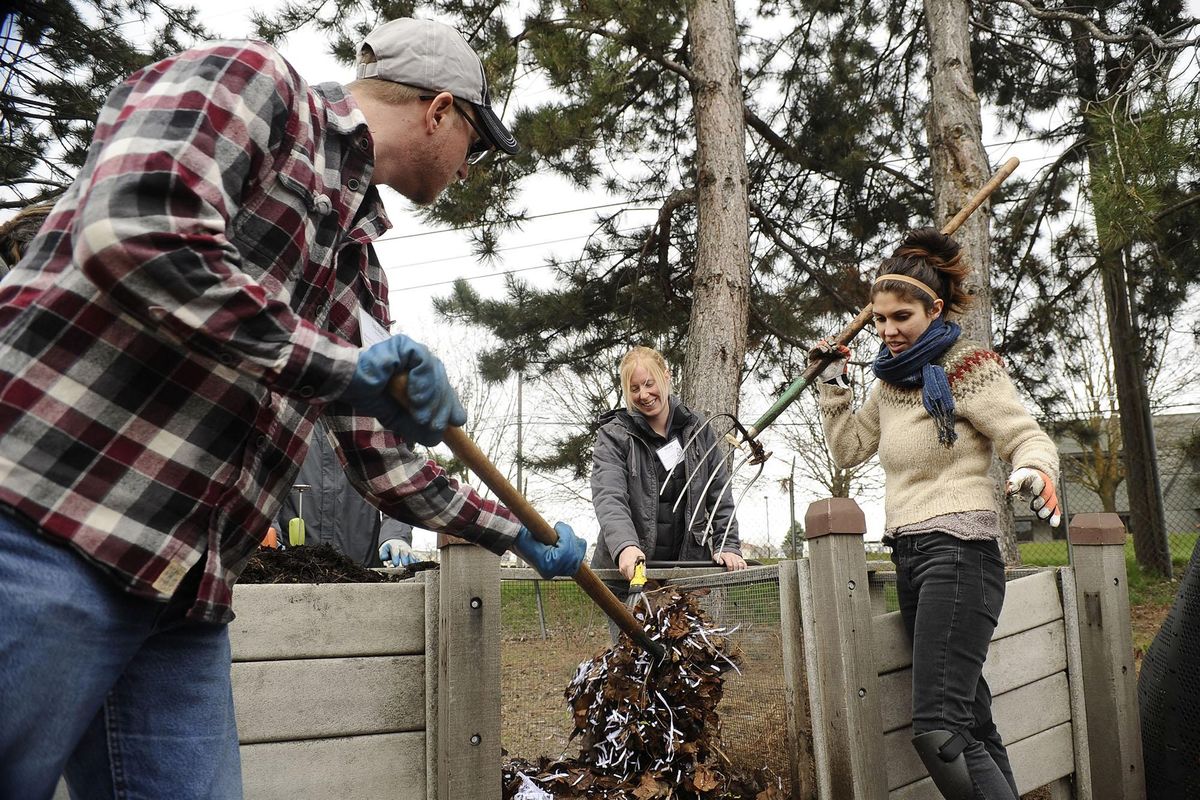In the Garden: Compost is the answer to so many gardening challenges

If you have sandy soil, compost will add texture to keep water from running right through it. With clay soil, compost breaks up the sticky soil particles to improve drainage and aeration. Soil lacking in fertility and plants without vigor will be dramatically improved with the addition of compost.
If you want to cut down on the amount of natural materials you’re paying to dispose of or do good things for the environment, compost is the way to go.
Kris Major knows the benefits of compost all too well. As education coordinator for the city of Spokane Solid Waste Disposal Department, she teaches classes for their Master Composters/Recyclers program to those eager to learn.
“Each year, our program runs from late March through April,” she explained. “Students spend five weeks learning about composting, compost tea, soil health and composting with worms. Then they get to share what they’ve learned with the public through community outreach.”
The Master Composters/Recyclers will share composting information at the Spring Compost Fair and Arbor Day Celebration held at Finch Arboretum on April 29. Refer to the information box for details.
So how does one make compost? Here’s the big picture:
“You need air, water, and materials that contain carbon and nitrogen,” Major said. “Everything is going to rot eventually, but the secret is in how you mix those elements, how much moisture you add, and the size pile you have.”
She suggests locating your compost pile in an area convenient for getting the materials to it and close to a water source.
“It doesn’t matter what type of bin you use, just something that holds the materials in the correct mass,” she said. “A 3-feet-square pile is ideal, but no bigger than 5 feet square as it might compress too much.”
It can be easy to feel overwhelmed by the science of composting but, generally speaking, you should aim for two parts green materials (nitrogen) to one part brown materials (carbon). Refer to the materials information box for guidelines.
“If you use chipped or shredded materials, they’ll break down faster because there will be more surface area for the microorganisms to chow down on,” Major said. “And if you add moisture so the pile is as wet as a wrung-out sponge, you’re off and running.”
Turning a compost pile provides microorganisms with new food sources and increases air circulation. How often you turn a pile depends on how quickly you want finished compost. Active composters who turn piles regularly can achieve this in eight to 10 weeks. Passive compost piles with little to no turning can take anywhere from one to four years to finish decomposing.
Major believes strongly in the value of composting.
“In a recent study, the Department of Ecology learned that a third of our waste stream – everything we throw in the garbage – could have been composted,” she said. “I’d like people to think a little more about the loss of that valuable resource. If it goes to a landfill or the Waste-to-Energy plant, it’s gone. All that beautiful carbon and nitrogen could have gone into the soil. You can’t get it back.”
Those interested in learning about composting or participating in the Master Composters/Recyclers program can call (509) 625-6580 or go to my.spokanecity.org/solidwaste/education/. They can also visit the compost learning area in the Green Zone at Spokane County Extension seven days a week. It is located adjacent to the south parking lot at 222 N. Havana St. and includes different types of composting bins and compost at various stages of decomposition.
To learn more about making compost, look for today’s “Everyone Can Grow A Garden” video on my YouTube channel, youtube.com/c/susansinthegarden.
Susan Mulvihill is co-author, with Pat Munts, of “Northwest Gardener’s Handbook.” Contact her at Susan@susansinthegarden.com and follow her on Facebook at facebook.com/susansinthegarden.